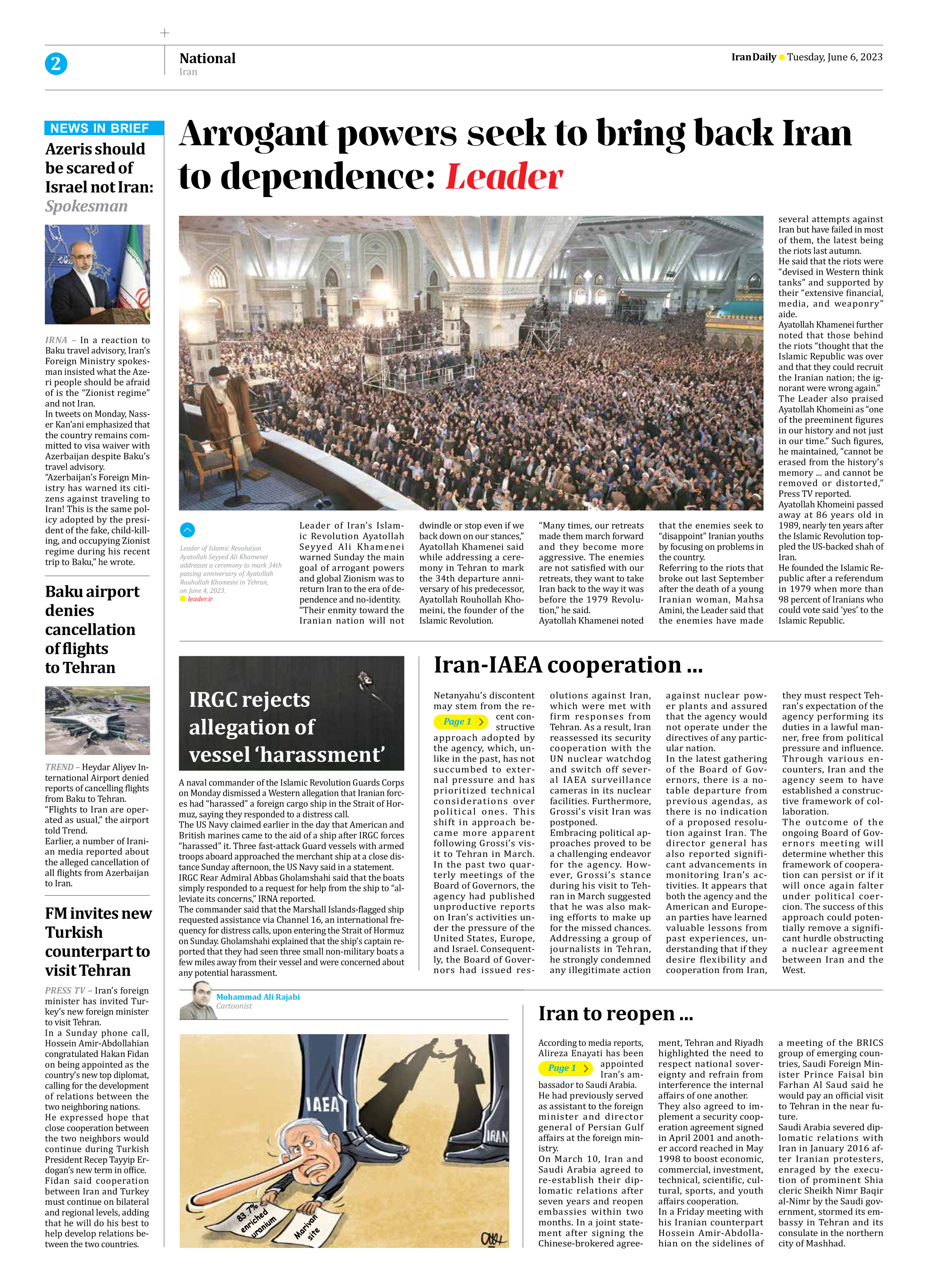
Iran-IAEA cooperation ...
Page 1
Netanyahu’s discontent may stem from the recent constructive approach adopted by the agency, which, unlike in the past, has not succumbed to external pressure and has prioritized technical considerations over political ones. This shift in approach became more apparent following Grossi’s visit to Tehran in March. In the past two quarterly meetings of the Board of Governors, the agency had published unproductive reports on Iran’s activities under the pressure of the United States, Europe, and Israel. Consequently, the Board of Governors had issued resolutions against Iran, which were met with firm responses from Tehran. As a result, Iran reassessed its security cooperation with the UN nuclear watchdog and switch off several IAEA surveillance cameras in its nuclear facilities. Furthermore, Grossi’s visit Iran was
postponed.
Embracing political approaches proved to be a challenging endeavor for the agency. However, Grossi’s stance during his visit to Tehran in March suggested that he was also making efforts to make up for the missed chances. Addressing a group of journalists in Tehran, he strongly condemned any illegitimate action against nuclear power plants and assured that the agency would not operate under the directives of any particular nation.
In the latest gathering of the Board of Governors, there is a notable departure from previous agendas, as there is no indication of a proposed resolution against Iran. The director general has also reported significant advancements in monitoring Iran’s activities. It appears that both the agency and the American and European parties have learned valuable lessons from past experiences, understanding that if they desire flexibility and cooperation from Iran, they must respect Tehran’s expectation of the agency performing its duties in a lawful manner, free from political pressure and influence. Through various encounters, Iran and the agency seem to have established a constructive framework of collaboration.
The outcome of the ongoing Board of Governors meeting will determine whether this framework of cooperation can persist or if it will once again falter under political coercion. The success of this approach could potentially remove a significant hurdle obstructing a nuclear agreement between Iran and the West.







